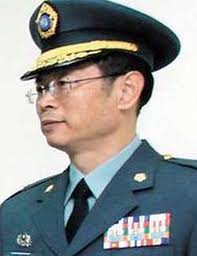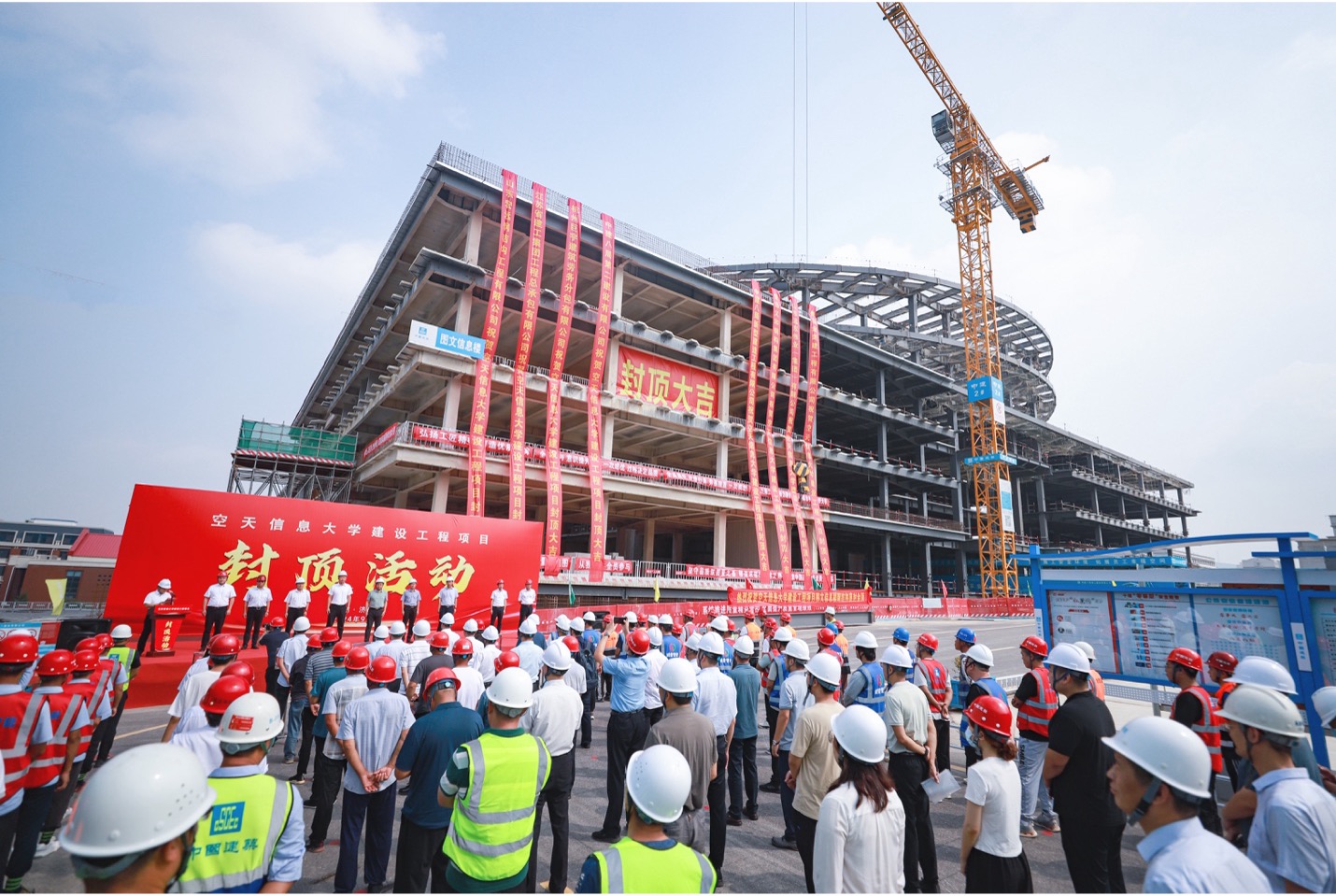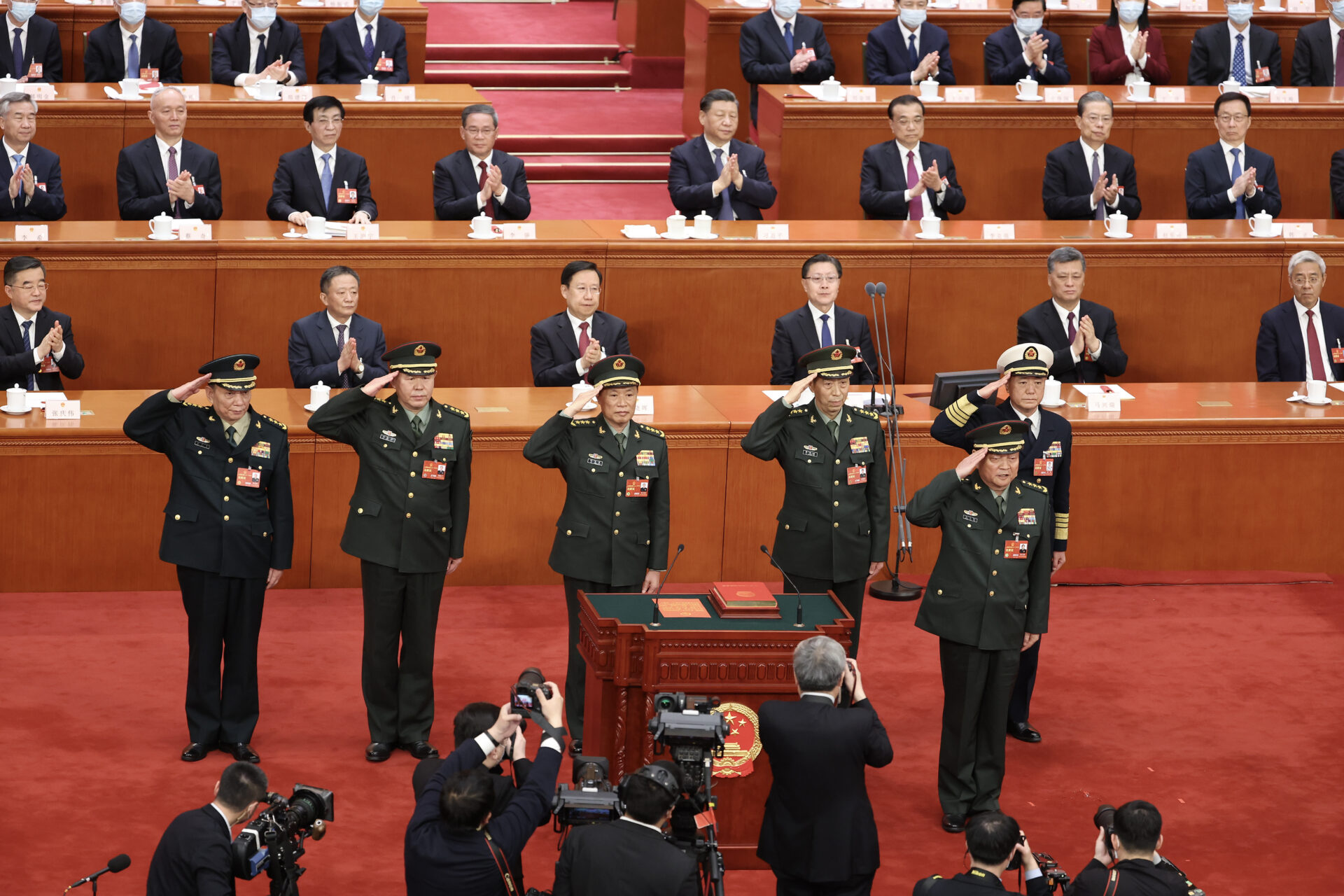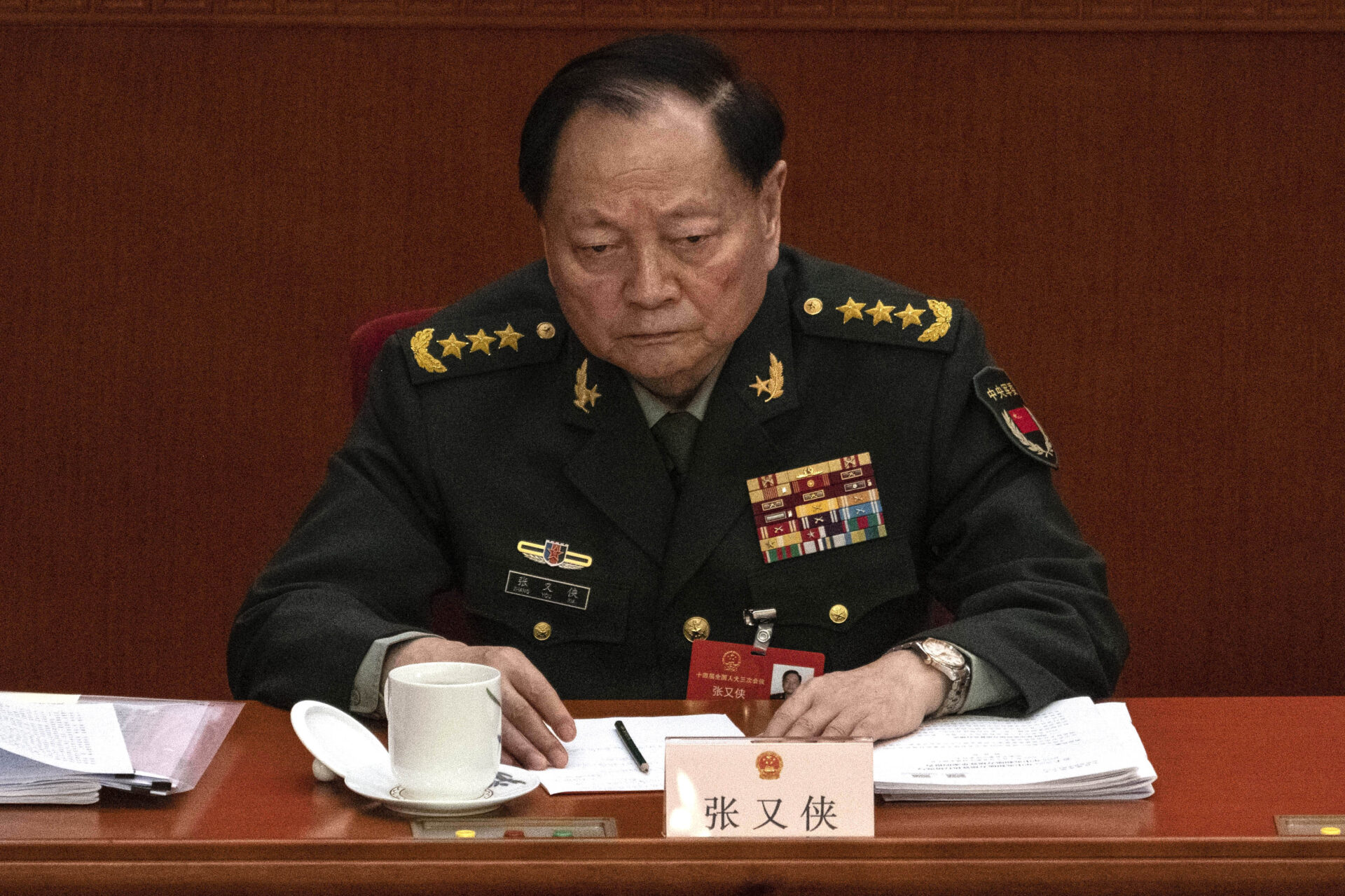
Taiwan Espionage Cases Highlight Changes in Chinese Intelligence Operations
Taiwan Espionage Cases Highlight Changes in Chinese Intelligence Operations
On June 13th, Taiwanese authorities detained businessman Lai Kun-chieh on charges that he spied for Beijing, attempting to steal military secrets for a still unidentified Chinese intelligence agency (Lianhe Xinwen, June 14). The case follows the standard plotline of most Chinese intelligence operations against Taiwan that has emerged since 1949. That is, Chinese intelligence recruiting Taiwanese businessmen or retired officials living in China to “run against” the Taiwanese government and military.
The allegations against Lai should draw attention back to the anomalous case of General Lo Hsien-chi, who was detained at the end of January. Lo’s case drew widespread attention because Lo was the highest ranking Taiwanese official since a vice defense minister in the 1960s to face espionage charges (BBC, May 20). More importantly, however, the case should have drawn more attention for its departure from China’s normal operations against Taiwan (and arguably any other country). Beijing handled this case entirely outside of China, demonstrating greater willingness to accept operational risks and suggesting the normal pattern of Chinese intelligence operations may be changing.
Details of the Lai Allegations
According to Taiwanese authorities, Lai was working for Lenovo in Beijing when Chinese intelligence approached him last year through an intelligence officer under cover with the Beijing municipal government. Through Lai’s work, he came in contact with “Li Xu,” who ostensibly worked as the deputy director of the Beijing Office of Taiwan Affairs. Lai claimed Li told him that if he failed to cooperate in collecting intelligence Beijing would not allow him to remain in China, but it is unclear whether any coercion was applied (Epoch Times, June 14; Lianhe Xinwen, June 14).
hinese intelligence tasked Lai to acquire Taiwanese military secrets, even though he lacked any known military connections and was not a retired military serviceman. Specifically, Li tasked Lai for information on U.S.-supplied Patriot Missiles and the annual Han Kuang exercises (Lianhe Xinwen, June 14).
One of the Taiwanese military officers approached by Lai alerted investigators to Lai’s efforts to gain access to military secrets, prompting an immediate investigation. This element adds credence to the denials of Taiwanese defense officials that an additional investigation has started to identify potential accomplices from whom Lai gained access to information on the Patriot Missile and Han Kuang exercises (The Associated Press, June 13).
Given Lai’s telecommunications background with Motorola, an interesting omission in the Chinese intelligence tasks—at least according to the information currently available—was the Taiwanese military’s architecture for command, control, communications, computers, intelligence, surveillance, and reconnaissance (C4ISR). Taiwan’s C4ISR program, Po Sheng, developed with the support of the United States, has been the target of Chinese intelligence, including in the cases of General Lo and US Defense Security Cooperation Agency official Gregg Bergersen (China Times [Taiwan], February 9) [1]. How and why intelligence services determine what their agents should collect is difficult to understand, and so is the reported absence of Po Sheng from Lai’s tasking. The absence of Po Sheng could indicate China already has collected sufficient information about the program and the technology to meet their needs, contravening the superficial damage suggested by Taiwanese and US authorities commenting on these past cases.
Structural Dynamics of the China-Taiwan Intelligence Contest
The Chinese intelligence services have attempted to collect intelligence from Taiwan since the end of the Chinese Civil War in 1949. Until 2008, the basic structure of the intelligence contest remained the same with only a few variations at the beginning of the Reform Era in 1979. Prior to China’s opening, both sides’ intelligence services rarely could directly access each other’s territory, forcing much of the intelligence contest onto more neutral ground. Known as the “Vienna of the East,” Hong Kong was a hotbed of intelligence activities against China, because few Chinese citizens could travel further afield than the British colony and foreigners rarely could enter China. Taiwan did not welcome Chinese citizens except as defectors [2]. Hong Kong thus became the focal point for the China-Taiwan intelligence contest with intelligence services from both sides recruiting non-government individuals to act as principal agents inside China and Taiwan.
China’s opening in 1979 marked the first change to this competition, allowing more foreign access. Taiwanese intelligence exploited this opening to start recruiting and running human agents with intelligence officers based inside China. The new dynamics would become a significant driver for the creation of the Ministry of State Security to unify Chinese counterespionage in 1983 (Xinhua News Agency, June 20, 1983).
With more Taiwanese citizens living and working in China, Hong Kong became less significant to both sides. Taiwanese intelligence officers could find and exploit sources in China; Chinese intelligence could more easily draw from a larger pool of Taiwanese without risk of monitoring by the Special Branch of the Royal Hong Kong Police Force. Yet, Chinese intelligence still had to rely on a principal agent with indirect or secondhand access to Taiwanese government and military secrets.
As a consequence of this constraint, Chinese intelligence operations against Taiwan developed a basic operational pattern. Chinese intelligence would monitor and approach a Taiwanese businessman, first in Hong Kong and later in China, who regularly traveled back to Taiwan. Although the record in Hong Kong is less clear, Chinese intelligence within China would threaten, implicitly or explicitly, the Taiwanese businessman’s livelihood and offer spying as a way out (BBC News, August 16, 2010). Chinese incentives ranged from cash payments to observable benefits, like reduced business fees and customs charges. The recruited businessman, if cooperative, would then attempt to recruit or elicit intelligence from contacts or friends in the Taiwanese government or military, usually with financial support from the Chinese intelligence services. This explains why the Taiwanese Ministry of Justice’s Investigation Bureau arrests two or more individuals in almost every Chinese espionage case.
This pattern of Chinese espionage suggests that the intelligence services rely heavily on their powers of investigation to identify potential agents. The State Security Law, for example, mandates citizens to cooperate with Chinese security officials, giving them ready access to hotels and residences. The intelligence services also can exploit a person-of-interest’s computer, cell phone, and any other personal electronic devices, harvesting that person’s contacts and correspondence for background information (State Security Law of the People’s Republic of China, available on china.org.cn).
The table below summarizes several recent Taiwanese espionage cases and how Chinese intelligence approached the operation, illustrating the pattern described above.
|
Select Chinese Espionage Cases Against Taiwan (2004-11) |
||||
|
Name |
Case Officer and Recruitment Location |
Incentives Used |
Agent’s Access to Information |
Type of Intelligence Collected |
|
Chen Chih-kau |
Inside China |
Cash & Coercion |
Retired |
Counterintelligence (CI) |
|
“Ho Ping” |
Inside China |
Cash |
Second-Hand |
Military |
|
Tseng Chao-wen |
Inside China |
Cash |
Retired |
CI & Military |
|
Huang Cheng-an |
Inside China |
Cash |
Natural / Direct |
Military Science |
|
Hsu His-cheh |
Inside China |
Cash |
Retired |
Military Science |
|
Lo Hsien-che |
Third Country |
Cash & Coercion |
Natural / Direct |
Military |
|
Chen Pin-jen |
Inside China |
Cash |
Second-Hand |
Political |
|
Ho Chi-chiang |
Inside China |
Cash & Coercion |
Second-Hand |
CI & Military |
|
Liao Hsien-ping |
Inside China |
Cash |
Retired |
Stability & Politics |
|
Sources: China Post, Taiwanese Central News Agency, China Times [Taiwan], South China Morning Post, BBC, and Taipei Times. |
||||
The Exceptional Case of General Lo
The Chinese recruitment and handling of General Lo Hsien-chi, director of Army telecommunications and electronic information, represented a departure from the pattern outlined above. While Chinese recruitment incentives were typical—cash and coercion—the investment, setup and execution of the operation looked like a traditional Western or Russian recruitment case.
The basic methods of the Chinese recruitment were similar to the typical mix of both coercion and incentive used to recruit Taiwanese spies. To engineer the recruitment, the Chinese intelligence officer set up a sexual encounter to generate blackmail material. Once coercion was possible, the officer then reportedly approached Lo, highlighting Lo’s potential problem and offering him up to hundreds of thousands of dollars to spy (Taipei Times, February 10).
In contrast to the pattern, a Chinese intelligence officer posted overseas recruited Lo, while he was stationed in Bangkok, Thailand as a military attaché between 2002 and 2005. Additionally, the blackmail attempt suggests China also established a larger operational infrastructure in Thailand than the presence of a commercially-covered intelligence officer might indicate. The legitimate Australian papers possessed by the Chinese intelligence officer indicate China is willing to devote substantial time and resources to developing the cover of its intelligence officers. Acquiring the papers also makes it easier for the officer to move around, opening operational opportunities in countries like the United States, Singapore, United Kingdom, Japan and others that allow Australian citizens to enter freely for short time periods (China Times [Taiwan], February 9; Taipei Times, February 10).
More interestingly, the Lo case is one of three publicly-known Chinese operations to unfold entirely outside of China—all of which have come to light in the last three years [3]. The other two involved Chinese intelligence officers covered as diplomats or journalists posted in Germany and Sweden, pursuing dissident targets (The Local [Sweden], December 15, 2009; Epoch Times, June 13).
Conclusions
The traditional U.S. interpretation of cases like Lai Kun-chieh’s is to see Chinese intelligence as amateurish and undirected [4]. Yet, as the table above showed, Chinese intelligence has successfully made use of such amateur agents to collect valuable intelligence. U.S. observers have confused them for poorly-trained case officers, fumbling to collect intelligence. This is largely because Lai and others like him perform a role usually reserved for professional intelligence officers. Apart from this obvious limitation, this kind of relationship allows Chinese intelligence officers to remain in the background and shields the intelligence relationship behind the agent’s normal travel to China.
The exceptional case of General Lo and the other two overseas cases in Germany and Sweden add weight to the suggestion that Chinese intelligence may be evolving to pursue foreign targets outside China. By posting officers abroad, the Chinese intelligence services potentially gain access to information that would be unavailable otherwise. The normal pattern of Chinese operations, at least against Taiwan, limits Chinese sources to those who already have a connection to China. Yet, such sources also are unlikely going to be able to comment authoritatively on issues not directly related to China, e.g. U.S. policy in the Middle East or Taiwanese policy in Latin America. These cases serve as another potential data point along with Geng Huichang’s appointment as MSS Chief in 2007, which suggest that the intelligence services are becoming more involved in Chinese foreign affairs. (For a more thorough analysis, see “Assessing the Foreign Policy Influence of the Ministry of State Security,” China Brief, Vol. 11, No. 1, January 14, 2011)
In the final analysis, the Lai case indicates that counterintelligence services will need to respect China’s continuing efforts to exploit foreign nationals living or doing business there for intelligence purposes. The spate of Chinese espionage cases in the United States also followed similar lines to the pattern of operations against Taiwan, including the most recent case of Glenn Duffie Shriver (“Espionage Case Highlights Traditional Chinese Espionage,” China Brief, Vol. 10, No. 22, November 5, 2010). Whatever changes may be underway in the intelligence services’ role in foreign affairs, monitoring foreigners inside China will continue to create opportunities for Chinese intelligence. Most MSS personnel work in provincial and municipal-level bureaus to support local counterintelligence and investigations [5]. Any change would require dramatic reform, indicating that domestically-based operations will continue to play an important role in the overall mix of Chinese intelligence operations for years to come, even if cases like General Lo’s become more common.
Notes:
[1] United States v. Tai Shen Kuo, Gregg William Bergersen, and Yu Xin Kang, Affidavit before the US District Court for the Eastern District of Virginia (2008).
[2] Steve Tsang, “Zhou Enlai: The ‘Kashmir Princess’ Incident of 1955,” The China Quarterly 139 (Sept. 1994), 782; James Lilley with Jeffrey Lilley, China Hands: Nine Decades of Adventure, Espionage, and Diplomacy in Asia (New York: Public Affairs, 2004), 84–85, 136–137.
[3] Sharp observers could point to the efforts of Chinese defense attaché Hou Desheng to acquire U.S. cryptological secrets in 1987 as a fourth case; however, the nature of the case suggests opportunism rather than a deliberate effort to acquire intelligence abroad clandestinely. US counterintelligence set up Hou in a sting operation, offering to sell “secrets” to see if Hou would bite (Los Angeles Times, December 31, 1987).
[4] David Wise, Tiger Trap: America’s Secret Spy War With China (New York: Houghton Mifflin Harcourt Publishing Company, 2011), 5–19.
[5] This judgment is based on the expansion of the MSS from a central ministry with few provincial elements to a nation-wide ministry with elements in every province and many local-level state security departments and bureaus. For a brief history of this expansion under Minister Jia Chunwang, see “Assessing the Foreign Policy Influence of the Ministry of State Security,” China Brief, Vol. 11, No. 1, January 14, 2011.


